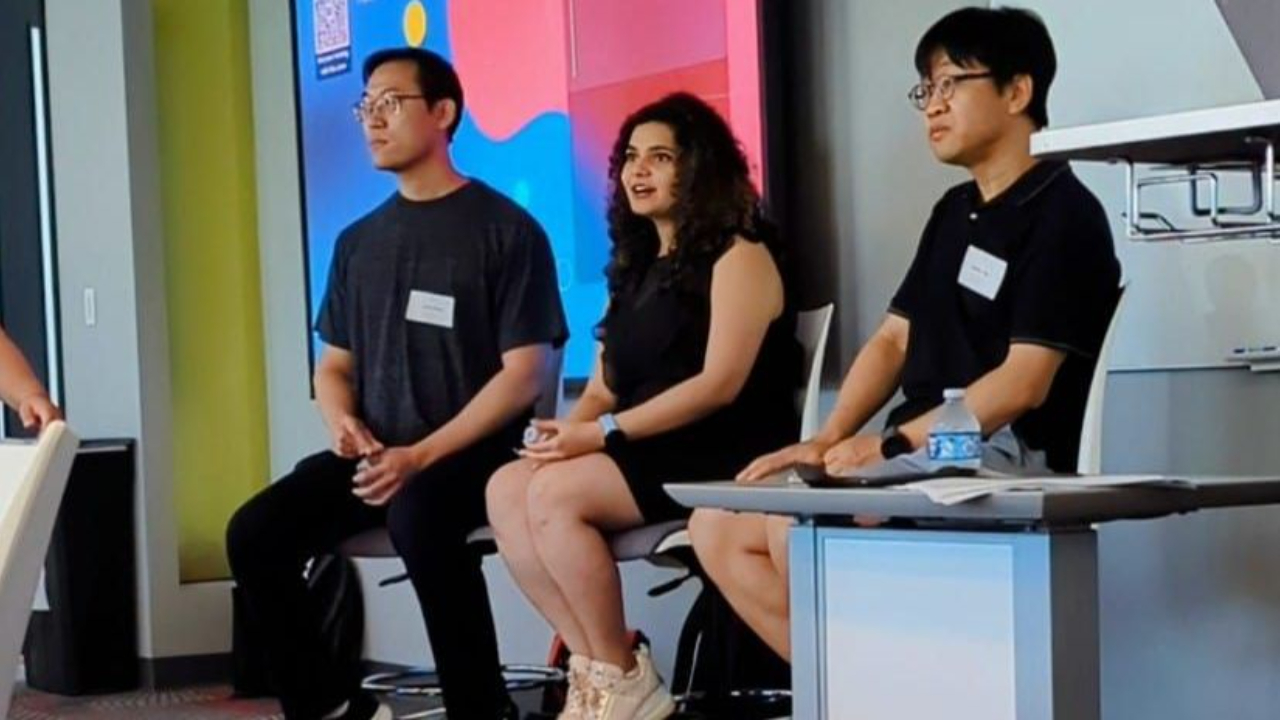
Recently, I sat on a panel at the Northeastern University to discuss with students about the challenging high tech job market and best practices in acing the interviews. I'd like to share some learnings and observations. It's a combination of my thoughts, great points from the fellow panelists, and interaction with the hard working students.
Fundamentals Still Matter
Problem solving, collaboration, and communication remain the top resume signals for new grads per NACE’s 2025 employer survey (problem solving ~90%, teamwork >80%). You’ll still get DSA/system-design-lite plus debugging/reading code tasks during the interviews. Here is the thing, even when AI is capable of doing 99% of the work, we still need engineers who understand the work produced by AI and be able to effectively collaborate with AI assistants.
Now the fundamentals also include AI related skills like LLM, Agentic AI, MCP, etc. AI will be integrated more and more into the software development life cycles. AI will also drastically change software design by replacing rule based programming paradigm. This means greater demand for relevant skills.
Up-leveling Skills is Crucial
The up-leveling here means understanding business, translating business problems into technical solutions, architectural design, making technical decisions, driving initiatives, project management, technical communications, inter-personal skills, etc. Writing boilerplate code type of entry software engineering work is disappearing fast thanks to AI. A project that use to take 1 senior engineer and 5 junior ones now takes only 1 senior engineer and 1 junior. This trend means increased demand on high level software engineering work. Although super deep technical nerds without much well-roundedness are still needed, but the numbers are smaller. More well-rounded engineers who could leverage AI to solve bigger end to end problems will be the major growth point in engineering career. You can see the trend that entry level engineering openings are impacted the most. Those who could adapt the fastest will be better positioned in this wave of AI trend.
Reach Out
Even during the tech boom before the AI wave, reaching out to industry connections and hiring managers were important in landing dream jobs. Today, it's important to help you stand out even for landing any average job. Reaching out is not for saying "could you consider me if you have an opening?". It's more about building connection and letting the other person realize the value you bring to the table, e.g., relevant projects, strong mindset, traits of being a strong well-rounded engineer, etc. So, do deep research of yourself to identify your strength/value, do deep research of the people you'd like to reach out to build connection, and take actions to engage.
Summary
Job market is tough, especially for new grads. However, there are things you could do to increase the odds of landing jobs. Challenges propel growth.
Subscribe to Newsletter
Get bi-weekly curated articles, tips, and resources for career success delivered to your inbox:



